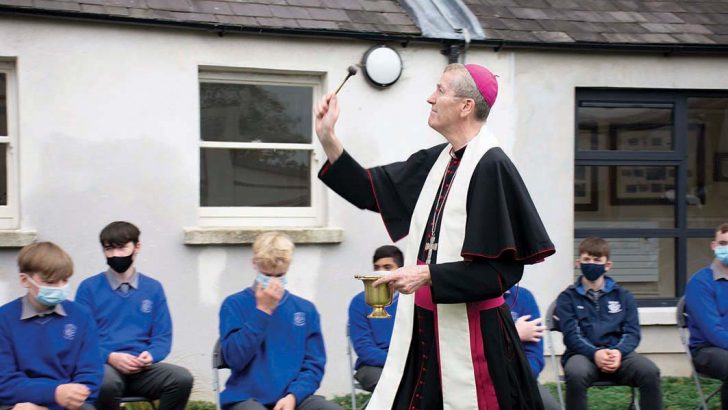Bishop Denis Nulty in a recent address to the Catholic Primary School Managers Association (CPSMA) said that while Catholic schools are inclusive and welcome all “we must also ensure they remain Catholic.” Asking how might we support our schools remaining Catholic in the fullest sense he said: “It may mean, being part of a fair and transparent divestment process, when the stakeholders feel they would be better served under a different patronage, but the schools that remain and that will be a substantial number of them, in my opinion, must be allowed to be unapologetically Catholic schools.”
Bishop Nulty said that the Catholic ethos must be from the school board down to the classroom.
“Intentional Catholic Schools see the whole person, not the problem that meets us on the corridor, not the messer that cries out for correction, not the young person who carries more troubles than any of us ever dream of, but the person made in God’s image and uniquely loved by God.” He said where ethos is grounded and lived “you literally smell it from the moment you set foot in the hallway or press the reception bell to gain entry. There is a prayer space there but there also is a space for prayer.”
Bishop Tom Deenihan who is chairperson of the Bishops’ Council for Education and is a director of the CPSMA asked delegates at the conference Mass, “how many Board members would know what happens in their own school? The Board is responsible for religious education too” he said. “How much time is given to real religious education, food that endures to eternal life in your school? It may be a difficult question and perhaps an unwelcome one but it is an important one and it is our business and our responsibility. What percentage of in-service time, of the annual budget is given to ethos and /or religious education by the Board? To paraphrase the gospel question, has faith now become the prophet not recognized in his own country, literally, the Board agenda?” He asked: “Do Christian values shine through? How would people recognise that your school is Catholic without a saint’s name in the title. Is your Catholic school the prophet not recognised in its own country or parish. If so, for God’s sake, will someone on the Board ask why?”
Bishop Nulty lamented the low number of Catholic school teachers who profess to be people of faith and stated that a key competency ‘Leadership of a faith school ‘ “should be truly embedded in the interview process at primary level. “Those charged with making appointments” he said “should understand deeply this competency. We need to do much more to encourage the development of faith in our schools and on our leadership teams.”
Both bishops said that the Catholic ethos means looking after the most vulnerable. “It is at the heart of our Catholic school ethos that we look after the most needy children.
Creating a space in our school for Special Needs children is the defining moment in how we live and root our Catholic ethos in 2025,” said Bishop Nulty.
Bishop Nulty told the conference that ethos also means saying prayers. “I like to see our schools teaching the simplest prayers and doing them well. Let’s put prayer at the heart of our school life.”


 Bishop Denis Nulty of the Diocese of Kildare and Leighlin blessing children
Bishop Denis Nulty of the Diocese of Kildare and Leighlin blessing children 